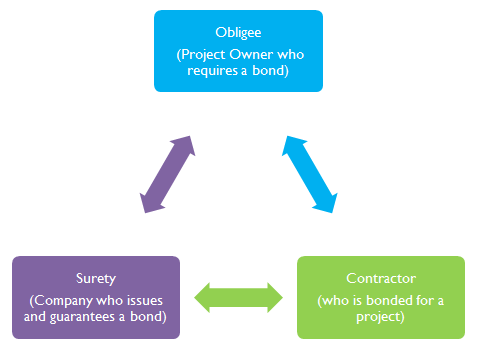Surety Bonding
Understanding the World of
Surety Bonding
MBDI was launched specifically to prepare MWBE construction contractors to become surety bond-ready, grow sustainably through systemic change, and become prime contractors.
Many government construction agencies and private developers require that contractors be "surety bonded" in order to participate on their projects. A surety bond is a rigorously underwritten credit-based product requiring that a business demonstrate capacity and excellent financial presentation to qualify. The requisite high standards present a difficult hurdle for many emerging businesses looking to enter the public and large private-works arena. MBDI programming is designed to demystify the bonding process and make bonding attainable for a subset of contractors that have historically been unable to secure bonding on its own.
A bond program can be viewed as a pre-qualifier for success on a given project. Even when a bond is not required for a particular job, the owner or prime may rely on a bond program as an independent endorsement that the contractor is equipped to successfully perform. The surety decision to bond a project or provide a bond program results from a contracting firm having built the infrastructure and financial presentation to illustrate capability. When a contractor cannot get bonded, or struggles to grow past its present bond program, that contractor generally needs assistance. This is where MBDI can step in to help.
MBDI helps motivated contractors to build their firm's infrastructure and presentation. Through coursework and advisory services, MBDI's support focuses on achieving sustainable growth, getting bonded and increasing bond lines.
What is a surety bond? And other key facts...
A surety bond is a three party agreement between the Guarantor or Surety, the Obligee or Project Owner, and the Principal or Contractor. The bond acts as a guarantee that a project will be completed, and as such protects the taxpayer and investor dollars that fund the project. The Surety issues the bond guaranteeing that the Contractor will perform the job for the Owner according to the contract terms. If the contractor fails to complete the bonded project, the surety steps in to resolve issues on the bonded project.

How is suretyship different from more common lines of insurance?
In traditional insurance, the risk is transferred to the insurance company. In suretyship, the risk remains with the principal. The protection of the bond is for the obligee.
Again, in traditional insurance, the insurance company takes into consideration that a certain amount of the premium for the policy will be paid out in losses. In true suretyship, the premiums paid are "service fees" charged for the use of the surety company's financial backing and guarantee.
In underwriting traditional insurance products the goal is "spread of risk." In suretyship, surety professionals view their underwriting as a form of credit so the emphasis is on prequalification and selection.
How does a surety underwrite?
Each surety company has its own guidelines and underwriting criteria. However, the following basic factors will be taken into consideration in some regard.
- Capacity. Does the applicant have the skill and ability to perform the obligation?
- Capital. Does the financial condition of the applicant justify approval of the particular risk?
- Character. Does the applicant's record show him to be of good character and likely to perform the obligation he or she assumes?
What is Personal Indemnity?
It is common for a surety to request the indemnity, or guarantee, of the owners of a closely held corporation. Typically, the spouse's indemnity also is required because personal assets are jointly owned. The two main reasons for this requirement are that the surety requires all personal assets to be available to back the guarantee and that there is less chance a principal will avoid his or her responsibilities if personal assets are at stake.
How does collateral security relate to a surety bond?
If an underwriter is unable to approve a bond request based on the qualifications given by the principal, the company may suggest depositing some form of collateral as an inducement to write the bond. In practice, many bonds are written on this basis, particularly ones that are considered financial guarantees.
